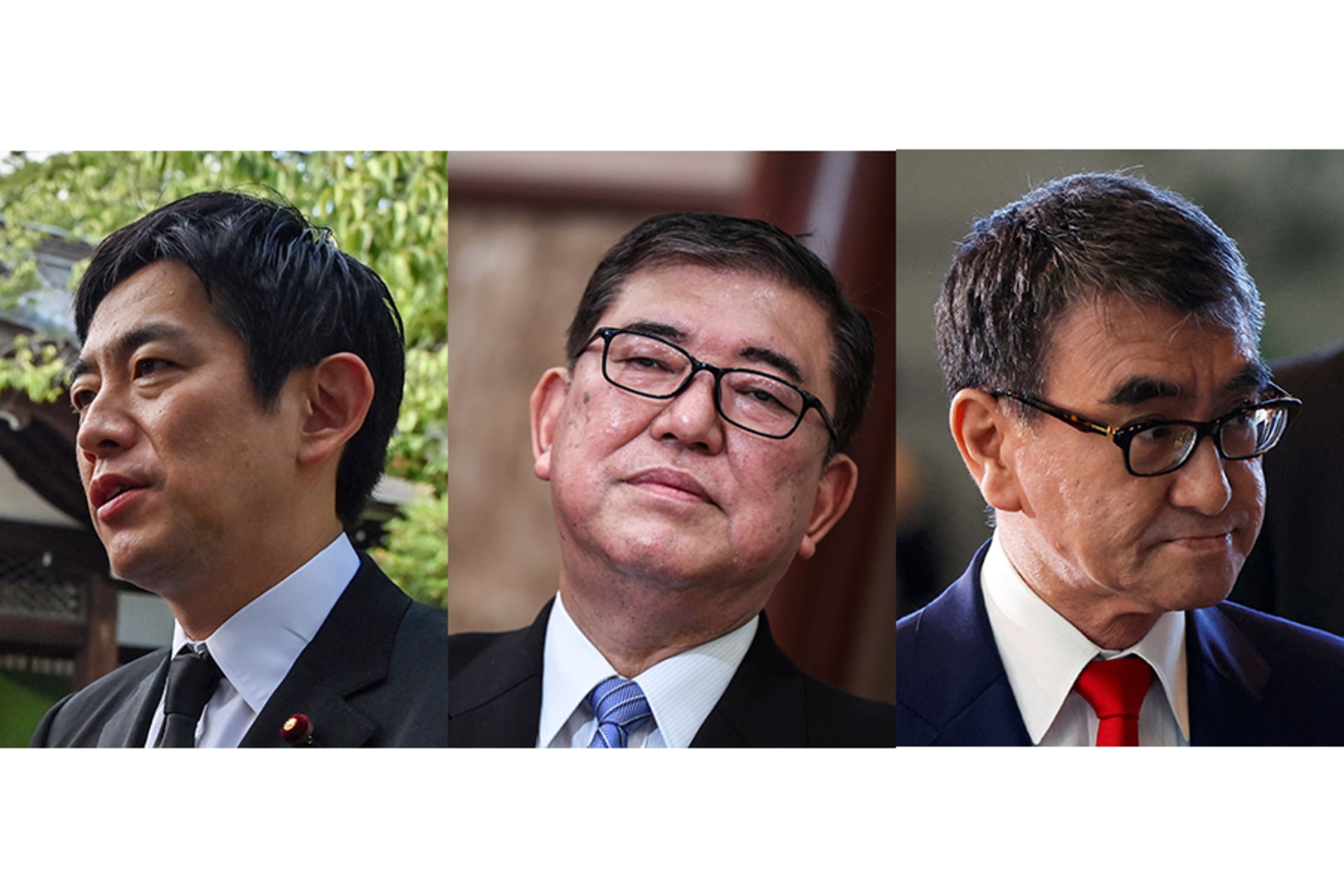The LDP Leadership Race: The Early Birds
When Prime Minister Kishida Fumio announced on August 14 that he would not seek re-election, the door opened for a number of LDP legislators with ambitions to lead Japan.

By experts and staff
- Published
Experts
![]() By Sheila A. SmithJohn E. Merow Senior Fellow for Asia-Pacific Studies
By Sheila A. SmithJohn E. Merow Senior Fellow for Asia-Pacific Studies
On September 27, Japan’s Liberal Democratic Party (LDP) will choose a new president. This race is not only about party, but also about country. The winner will become Japan’s next prime minister. The LDP is lagging in the polls. Only twice since its formation in 1955 have Japanese voters ousted the conservatives. With the opposition still not offering any serious alternative, the LDP is unlikely to lose the election. But this election is all about the next general election and how to avoid weakening the legislative foundation that has allowed them to govern since Abe Shinzo led them back into power in 2012.
When Prime Minister Kishida Fumio announced on August 14 that he would not seek re-election, the door opened for a number of LDP legislators with ambitions to lead Japan. Stung by political scandals over the past year, the LDP has lost considerable ground even among its loyalists. According to an August poll by NHK, support for the ruling LDP had fallen below 30 percent. Kishida stepped back, arguing that the party could recover popular trust only if a “fresh face” took over. Equally compelling, Kishida called for the next leadership race to produce a “dream team” with the policy chops to navigate the hurdles Japan now faces.
So, who is running to lead this “dream team”? Candidates must formally declare their candidacy by September 12. Coming into this week, three early bird contenders had formally announced. The most recent poll, conducted by the Asahi Shimbun on August 25, gives a sense of their popularity. Expect at least four more candidates to come forward this week. Some expect ten or more candidates could join the race, the largest ever pool of aspirants for president of the LDP and, ultimately, for prime minister.
Kobayashi Takayuki
This forty-nine-year-old newcomer was the first out of the gate, announcing his candidacy on August 19. He is from Chiba prefecture, a suburb of Tokyo, and is serving his fourth term in the House of Representatives. In 2021, Prime Minister Kishida gave him a Cabinet-level position to draft new economic security promotion legislation, which was adopted into law by the Diet in May 2022.
Kobayashi’s self-chosen nickname is Koba-hawk, referencing his aspiration for soaring high and demonstrating strength. But he also has a penchant for defense policy. Since announcing, he has had an open discussion forum on YouTube, called Koba-talk. In the late August Asahi Shimbun poll, Kobayashi received 5 percent of support from LDP fans and an equal percentage from all respondents.
Ishiba Shigeru
Sixty-seven-year-old Ishiba has been elected twelve times from a largely rural constituency in Tottori prefecture. He has served as Japan’s Minister of Agriculture, Forestry, and Fisheries and its Minister of Defense. Ishiba has also served in senior LDP positions, including a stint as Secretary-General of the party and as head of its Policy Research Council. This is his fifth run at the party presidency, and in announcing his bid, he says it will be his last.
In government, Ishiba was known for his attention to detail on policy issues. Out of government, he has become a frequent guest on television talk shows, making the discussion of public policy accessible to a broad audience. Now that he is in the race, he is a frequent guest on the talk show circuit. In the August 26 Asahi Shimbun poll, Ishiba drew 23 percent of LDP supporters and 21 percent of all respondents.
Kono Taro
On August 26, Kono Taro became the third to announce he was in the 2024 LDP leadership race. This will be his third try. Kono has long advocated for improving Japan’s governance and has held significant domestic reform positions in the Koizumi, Abe, Suga, and Kishida Cabinets.
Currently, Kono is Japan’s Minister for Digital Affairs, responsible for finally bringing the government into the digital era. As Minister for Administrative Reform under former Prime Minister Suga Yoshihide, Kono was tasked with the emergency management of the pandemic vaccination program, which was also fraught with controversy.
Kono also has a keen interest in Japan’s foreign policy and chaired the Foreign Affairs Committee in the House of Representatives. He served as Minister of Foreign Affairs and Minister of Defense under Prime Minister Abe Shinzo. Since 1996, he has represented Kanagawa prefecture, home to a major naval port for U.S. and Japanese forces; he has a detailed understanding of the implementation of the US-Japan Security Treaty and its Status of Forces Agreement.
Kono Taro maintains an active social media presence, especially on X. The late August Asahi Shimbun poll shows him with 8 percent support from LDP members and 6 percent from all respondents.
